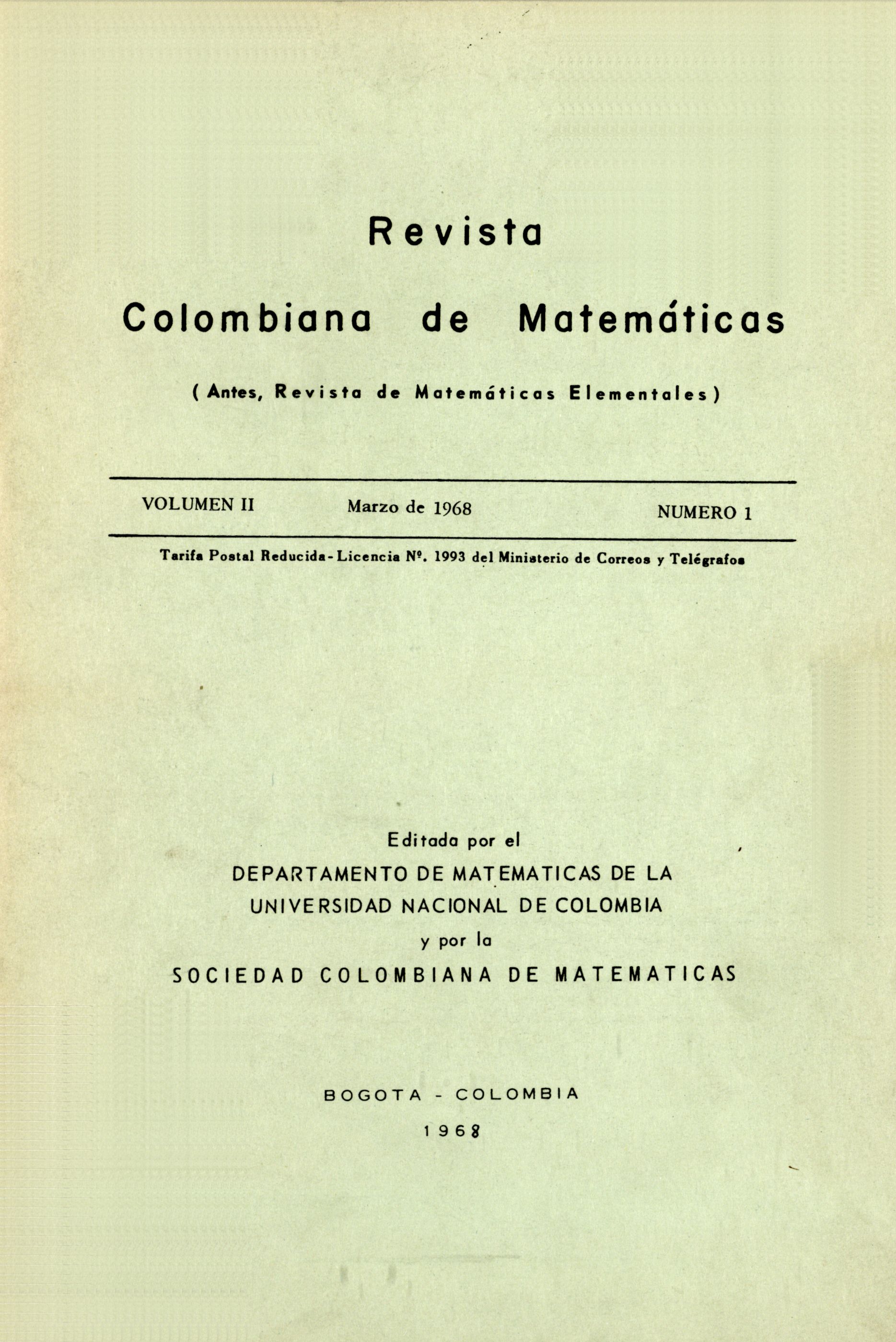Some non-maximal arithmetic groups
Schlagworte:
Teoría de los números, grupos discontinuos, grupos aritméticos (es)Downloads
Let k be a non-finite Dedekind domain, and σ be the ring of its integers. We shall assume that the ring R = σ/ (2) is finite. Let us denote by Mn (k) (resp. Mn(σ) ) the ring of all n by n matrices with entries in k (resp. in σ), and Gln (k) its group of units.
We denote by sln (k) the subgroup of Gln (k) whose elements g have determinant, det g, equal to one. Let H ε Mn (σ) be a symmetric matrix, i.e., H = tH where tH denotes the transpose matrix of H. We let G = SO (H) = { g ε Sln (k) l tgHg = H }, and we let Gσ = G∩Mn (σ). We want to exhibit certain H for which Gσ is not maxinal in G, in the sense that there exist a subgroup Δ contains Gσ properly and [Δ : Gσ] is finite.
Zitationsvorschlag
APA
ACM
ACS
ABNT
Chicago
Harvard
IEEE
MLA
Turabian
Vancouver
Bibliografische Angaben herunterladen
Aufrufe der Abstractseiten von Artikeln
Downloads
Lizenz
Copyright (c) 1968 Revista Colombiana de Matemáticas

Dieses Werk steht unter der Lizenz Creative Commons Namensnennung 4.0 International.












